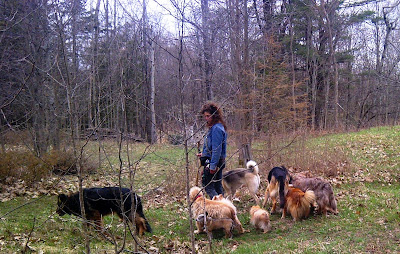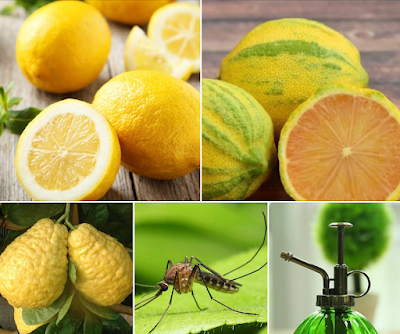Omega-3, Omega-6 Fatty Acids for Dogs, Cats - Health Benefits, Best Sources, Dosage
 |
| My Sweet Boxer x Pit Bull 'Robbie' |
- The Importance of Providing a Balanced Intake
- Health Benefits of Omega-3 Fatty Acids
- Health Benefits of Omega-6 Fatty Acids
- Selecting a Good Product
- Good Sources of Omega-3 Fatty Acids
- Guideline for Typical Daily Dosage of Omega-3
- Good Sources of Omega-6 Fatty Acids
- Guideline for Typical Daily Dosage of Omega-6
- Omega-6 Fatty Acids To Be Avoided - Not Safe!
- Cautions
- Drug Interactions
Omega-3 and Omega-6 fatty acids are very important for the overall health of a dog and cat. Conversely a lack of good-source omega fatty acids can create many health issues, from allergies to cancer, fur and skin problems, heart disease and a host of other problems as you will see further below.
 |
1.0 The Importance of Providing a
Balanced Intake of Omega-3 to 6
1.1 The Impact of a Balanced Intake
A balanced intake of appropriate Omega 3 and 6 fatty acids helps protect your dog and cat's body from inflammatory issues and disease.
- Inflammation is a trigger for many inflammatory diseases including:
- Allergies
- Arthritis
- Cancer
- Diabetes
- etc.
As the body does not store Omega-3, daily intake of sufficient Omega-3 is essential for overall health and well being.
- Alpha-linolenic acid (ALA);
- Eicosapentaenoic acid (EPA), and;
- Docosahexaenoic acid (DHA)
2.1 Omega-3 Fatty Acids Help Avoid, Control, Treat,
Remedy:
- Arthritis
- Asthma
- Atopy
- Support optimum brain function
- Bone health
- Digestive disease
- Eosinophilic granuloma complex
- Excessive blood clotting
- Flea allergies
- Hair/fur problems
-
Helps prevent cancer growth
- Heart disease
- Learning difficulties
- Lowers the amount of lipids (i.e. cholesterol, triglycerides) circulating in the bloodstream
- Immune-mediated skin disease
- Inflammation throughout the body
- Inhibits thickening of the arteries
- Kidney disease
- Reduces risk of obesity
- Seborrhea
- Metabolism regulation
- Military dermatitis
- Maintains fluidity of cell membranes
 |
| Robbie with Sarah my GSD x Husky |
3.0 Health Benefits of Omega-6 Fatty
Acids
Omega-6 Fatty Acids Help:
- Build cell membranes and support cell health
- Dry coat
- Mycoplasma
- Regulate Blood Clotting
- Seborrhea
Not All Sources of Omega Fatty Acids Are Equal
It's important to understand that although Omega 3 and 6 can be found in many foods not all sources of these fats offer good quality, safe nutrition.
4.0 Selecting a Good Product
4.1 Decide On Your Approach
How you choose to supplement depends on your life-style, personal priorities etc...
- Pre-blended Supplement 'all-in-one' liquid or soft-gel
- If your priority is time-efficiency over quality than your best bet is a pre-prepared, pre-blended supplement that provides (or claims to provide) a full spectrum of omega fatty acids (3-6-9);
- This may save you time but you may end-up sacrificing convenience for quality if you do not choose the product wisely;
- If you choose the pre-blended product you will also need to decide if you are going to use a liquid supplement or a soft gel supplement.
- Single Source Whole Food Products:
- You may instead prefer to use single source products that you add yourself to your companion animal's food;
- This choice can provide you with more flexibility as to the quality of products as you can select the type and quality of the omega-3 and 6 you use;
- For example you may decide to use Norwegian Krill Oil for omega-3 and organic virgin Coconut oil for Omega-6.
4.2 What's My Preferred Approach?
I prefer using good quality human food-grade whole food products such as whole sardines or good quality organic oils - e.g., hemp oil, flax seed oil, organic tahini, and wild fatty fish oils with no additives. My dogs also get avocado in their daily diet - you can read here about the health benefits, and how to introduce avocado to your dog's diet.
4.3 Read The Product Label for Quality Assurance
Next it is so important to read product ingredient lists, here's why:
- Omega-3 Fatty Acids
- If the label says 'fish oil' and does not disclose the source of the fish then you are likely looking at a product that is derived from factory farmed fish;
- What is wrong with that? Well...
- Factory farm fish are raised in confined and often man-made pools.
- When many living organisms are forced to live in unnatural and confined conditions the environment that they live in becomes a breeding ground for disease and parasites.
- Factory farm fish are:
- Fed food pellets that are comprised of non-organic and often species inappropriate food.
- Are given antibiotics, may be given growth hormones, synthetic chemical pesticides and fungicides to control parasites and fungus.
- All of these substances are ingested by your dog or cat when they consume the oil.
- Resulting in: an increase of toxic loading, hormone disrupting build-up, antibiotic resistance building - all health threatening conditions.
- So while you may have the good intention of improving your dog's or cat's health with the supplement you may actually be furthering the development of health issues.
- To avoid this pitfall choose a product that is labelled specifically and clearly with no ambiguity, i.e.
- The ingredient list states that the source of the Omega-3 fatty acids are:
- Norwegian Krill oil or Wild Alaskan Salmon Oil or;
- Organic Cold Pressed Flax Seed (Linseed) oil, Organic Hemp Seed Oil, etc.
- And remember that you are looking for a product that contain the full spectrum of Omega-3 fatty acids...
- ALA - Alpha-linolenic acid
- EPA - Eicosapentaenoic acid
- DHA - Docosahexaenoic acid
- Avoid 'Fankenfish' - Nickname for GMO Salmon
- GMO salmon has just been approved in Canada;
- DO NOT use any product that is derived from GMO fish - the long-term effects of ingesting an animal-based Genetically Engineered (GE) product IS NOT known;
- What is evident to me is that such a product will have similar adverse health risks as GMO corn and GMO soy;
- If you are not familiar with the multitude of serious health risks posed by:
- Plant-Based Omega-6 GMO Oils v.s Quality Plant Oils
- If the product includes poor source omega-6 oil from GMO plant crops such as: soy, canola, cottonseed, safflower you are once again introducing an ingredient that is very high in pesticide residue, fungicides, genetically modified properties - all of which increase you dog's or cat's toxic load, increase the chance of hormone and endocrine disruption, renal issues, bladder and other cancers, etc.
- To avoid this pitfall choose a product that is labeled specifically and clearly with no ambiguity.
- The ingredient list states that the source of the oil is:
- Omega-3 from Norwegian Krill oil or Wild Alsaskan Salmon Oil or Organic Cold Pressed Flax Seed (Linseed) oil.
- Omega-6 from organic coconut oil.
- This way you know that you are getting a quality product that is as free of toxins as possible.
- Avoid Products that Contain Fillers and Other Unnecessary Unhealthy Ingredients
- Look for products that do not contain fillers, soy or wheat-based derivitives, food colouring, artificial flavoring, sweeteners, etc.
- If you are going to use a soft-gel look for products that do not contain chemical-based slipping agents.
4.5 Decide on Human Grade or 'Made for Pets'
You can use a quality human-grade supplement or a product specifically made for dogs and cats.
- The dog and cat supplements are not specifically formulated to be better for your dog or cat than a good human grade product;
- The balance required for human, canine and feline intake of Omega 3 to 6 fatty acids are the same for all three species;
- Products made specifically for the dog and cat food industry tend to be over-priced simply because the product is targeted to retail to a 'specialty' market.
4.6 Introduce Oils Gradually to the Diet
Some dogs and cats are allergic to or have a sensitivity to fish oil. Fish oil may cause diarrhea in some dogs and cats.
If your dog or cat has never had a fish supplement (liquid oil or gel) before introduce fish oil to the diet starting with 1/4 of the recommended daily dosage and over he space of a several weeks incrementaly increase the dosage until you reach the standard daily dose.
4.7 Allergies - Food and Environmental
If your dog or cat is allergic to shellfish do not give her krill oil.
If your dog or cat has an environmental allergy to the Linum family of plants do not use flax or flax seed (also known as linseed) oil.
If your dog or cat has an environmental allergy to the Cannabaceae family of plants do not use hemp seed or hemp seed oil.
The same is true for any other food or environmental allergy - check ingredients against allergens and substitute to suit.
EPA - Eicosapentaenoic acid
DHA - Docosahexaenoic acid
Some dogs and cats are allergic to or have a sensitivity to fish oil. Fish oil may cause diarrhea in some dogs and cats.
If your dog or cat has never had a fish supplement (liquid oil or gel) before introduce fish oil to the diet starting with 1/4 of the recommended daily dosage and over he space of a several weeks incrementaly increase the dosage until you reach the standard daily dose.
4.7 Allergies - Food and Environmental
If your dog or cat is allergic to shellfish do not give her krill oil.
If your dog or cat has an environmental allergy to the Linum family of plants do not use flax or flax seed (also known as linseed) oil.
If your dog or cat has an environmental allergy to the Cannabaceae family of plants do not use hemp seed or hemp seed oil.
The same is true for any other food or environmental allergy - check ingredients against allergens and substitute to suit.
5.0 Good Sources of Omega-3 Fatty Acids
ALA - Alpha-linolenic acidEPA - Eicosapentaenoic acid
DHA - Docosahexaenoic acid
- Atlantic Mackerel
- Anchovy
- Chia Seeds (whole or ground), Chia Seed Oil
- Cod Liver Oil
- If you are going to use be careful pay special attention to the product that you purchase:
- Many brands of cod liver oil are very high in vitamin A and relatively low in vitamin D.
- This lack of balance between A and D has the potential to cause vitamin A toxicity.
- For this reason it is important to choose a cod liver oil that has a considerably lower ratio of vitamin A to vitamin D.
- Dairy Products from pasture fed cows, goats and sheep
- Eggs from pastured free-range chickens.
- Flax Seeds (ground), or Cold-Pressed Organic Flax Oil (also called Linseed)
- Non refrigerated, non-organic flax oil does not have the same healthful properties of cold-pressed organic refrigerated flax oil.
- Green Leafy Vegetables
- Norwegian or Arctic Krill oil
- Meat protein from pastured free-range animals, and wild-harvested animals
- Wild-caught fish such as:
- Pacific or Atlantic Herring
- Wild Alaskan Salmon
- Sardines
- Sprat
- Menhaden fish
Norwegian or Arctic Krill oil is said to be the best, cleanest, most complete and bioavailable supplemental source of Omega-3 fatty acids. If you are going to use Salmon oil - be sure to buy only wild salmon oil or Atlantic salmon oil. Farmed salmon and other farmed fish is high in toxins, antibiotics etc. as noted in section 4.0 above.
6.1 Norwegian or Arctic - Krill Oil, Cod Liver Oil or Wild Alaskan Salmon Oil
Daily Dosage for Dogs and Cats
Chia, Flax Seed Oil
6.0 Guideline for Typical Daily Dosage -
Omega-3
6.1 Norwegian or Arctic - Krill Oil, Cod Liver Oil or Wild Alaskan Salmon Oil
Daily Dosage for Dogs and Cats
- X-Small Dogs and Cats
- 1 -14 lbs – 250mg
- Small Dogs and Cats
- 15-29 lbs – 500mg
- Medium Dogs
- 30-49 lbs – 1000mg
- Large Dogs
- 50 -79 lbs – 1500mg
- X-Large Dogs
- 80 lbs and up – 2000mg
Chia, Flax Seed Oil
- 1 tsp per every 11 lbs of body weight;
- 1 ml per every 1 kg of body weight.
7.0 Good Sources of Omega-6 Fatty Acids
LA - Linoleic acidGL - Gamma-linoenic acid, and
AA - Arachidonic acid
- Animal Meats
- Coconut Oil (see below)
- While virgin coconut oil is 90% saturated fat, when added to a dog’s diet in small quantities, on a daily basis virgin coconut oil has many beneficial qualities. It is also very effective as a topically applied treatment on cuts, wounds and for ailments of the skin. To learn about the extensive benefits of adding coconut oil to your dog’s daily diet click here.
- Chia Seeds (ground or whole) or Chia Seed Oil
- Hemp Oil
- Pumpkin Seeds
8.0 Guideline for Typical Daily Dosage Omega-6
8.1 Hemp, Flax, Pumpkin Seed Oil
- 1 tsp per every 11 lbs of body weight;
- 1 ml per every 1 kg of body weight.
- 1/4 tsp per every 10 lbs of body weight twice daily;
- 1/2 tsp per every 10 lbs of body weight once daily.
- Coconut oil health benefits, go here.
9.0 Oils That Are Not Recommended
Do not give your dog or cat non-organic:
Canola Oil, Cottonseed Oil, Safflower Oil, Soy Oil
Canola oil, soy products, soy oil, safflower oil, cotton seed oil are grown from Round-up Ready Genetically Modified (GM) seed crops (i.e. in North America). These oils are all very high in pesticide residue...
Canola and soybeans in the USA and Canada are almost all grown from
Genetically Modified (GM) seeds - the long term affect of ingesting GM food is
not known. Further to this, large factory farms use a method to process soy
that leaves it very high in photoestrogens. Photoestrogens have been proven to
interfere with reproduction and thyroid function. Factory farming
processing methods for soy also result in a product that is very high in
phytates. Phytates prevent mineral absorption as well as substances that
prevent the normal function of enzymes required to digest protein. And one last
thumbs down for large factory farm produced soy - it has one of the highest
concentrations of pesticides found in North American crops. Traditional methods
of processing soy by fermentation (as employed in Japan and China) greatly
reduces photoestrogens, and phytates, thus making consumption of the resulting
soy, safe and nutritional.
10.0 Cautions
- Some dogs and cats are hypersensitive (intolerant or allergic) to shell fish and/or krill.
- If you think your dog or cat is allergic to shellfish do not give her krill oil.
11.0 Drug Interactions
If your dog or cat is on the following drugs consult your veterinarian before supplementing with Omega-3 Fatty Acids:
- Blood thinners
- Beta blockers
- Diuretics
12.0 Holistic Support
Holistic Wellness Services and Holistic Behaviorist Services
Holistic Wellness and Behaviorist Services
Do you need holistic advice to support your companion animal's health and well being? Become a client. Book your consultation. My professional holistic nutrition, wellness and behavioral services are available to you:
🌿 Holistic Wellness Services for Dogs and Cats 🐕 🐈
🌿 Holistic Behaviorist Services for Dogs 🐕
My Holistic Client Services are Available Worldwide:
🇺🇸 USA
🇨🇦 Canada
🇬🇧 UK and other European countries
🇦🇺 Australia and other Oceania countries
🇭🇰 Hong Kong and other Asian countries
🇨🇷 Costa Rica and other Central American countries
🇪🇺 European countries
🇹🇹 Trinidad and Tobago and other South America countries
🇿🇦 South Africa and other African countries
🇸🇪 Sweden and other Nordic countries
🇦🇪 United Arab Emirates
Available Holistic Consultations and Sessions:
📱 FaceTime
📱 Facebook video or voice calling
💻 Skype
📞 Phone
🚶🏻♀️ In-Person
Menu of Holistic Wellness Services for Dogs and Cats 🐕🐈
For more information go here.
✅ Maintain Health, and;
✅ Address Health Issues and Conditions:
✓ Treatment and Remedy
✓ Pre-Surgery holistic support protocols
✓ Post-Surgery holistic healing protocols
✓ Pre-Vaccine holistic support protocols
✓ Post-Vaccine holistic support protocols
✓ Natural Insect and Parasite Prevention
✓ Natural Treatment for Insect, Parasite Infestation, Co-Infection, Disease
✅ Custom Designed Whole Food Diets - raw or gently cooked, and;
✅ Advice and Recommendation:
✓ Premade Diets - raw, dehydrated, freeze dried
✓ Supplemental Fresh Foods - raw, gently cooked
✓ Super foods
✓ Treats - raw, dehydrated, freeze dried, gently cooked
✓ Herbs
✓ Alternative Medicines
Menu of Holistic Behaviorist Services for Dogs 🐕
For more information go here.
In-person Sessions - available locally
Voice and Video Sessions - available worldwide
✓ Obedience Training
✓ Behavior Modification
✓ Psychological Rehabilitation
Affiliations to Companies
✓ None.
✓ I don't sell food or supplements.
✓ I'm not aligned with any companies.
✓ I choose to maintain my objectivity in selecting best-solutions for my individual client's needs.
Contact me
karen@ottawavalleydogwhisperer.ca
Article and graphics by Karen Rosenfeld














